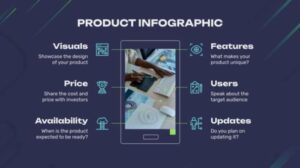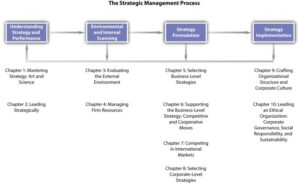
Cover letter personalization is more than just a formality; it’s a strategic approach to standing out in a crowded job market. By tailoring your cover letter to the specific role and company, you not only showcase your skills but also demonstrate your genuine interest in the position. Personalization helps bridge the gap between you and potential employers, making your application more memorable.
In this guide, we’ll delve into the significance of cover letter personalization, explore effective techniques for crafting a unique letter, and discuss how this innovation can enhance your job prospects, particularly in diverse industries and international markets.
Importance of Cover Letter Personalization
Personalizing a cover letter is a vital step in the job application process. It allows candidates to stand out in a sea of generic submissions, showcasing their genuine interest in the position and the company. A tailored approach can significantly enhance the perception of the employer, as it reflects an understanding of the company’s values and culture.The impact of personalization on employer perception is profound.
Employers are more likely to remember applicants who show enthusiasm and a clear connection to the role. Personalization signals that the candidate has done their homework and is not just sending out blanket applications. However, candidates often make common mistakes, such as using a one-size-fits-all template or failing to address the hiring manager by name. These missteps can undermine the effectiveness of their cover letter.
Techniques for Personalizing Cover Letters
To create a compelling personalized cover letter, it’s essential to employ various research methods. Begin by exploring the company’s website, social media profiles, and recent news articles. Understanding the company’s mission and values allows candidates to align their personal values with the organization’s culture. Consider using the following checklist to ensure your cover letter is personalized:
- Address the hiring manager by name.
- Reference specific projects or values of the company.
- Include relevant experiences that demonstrate your fit for the role.
- Highlight personal connections to the company’s mission.
Business Innovation and Cover Letter Personalization
Innovation within a business can often be reflected in a personalized cover letter. Candidates should identify innovative features that showcase their understanding of the company’s mission. For instance, incorporating insights about the company’s recent product launches or initiatives can demonstrate a proactive approach.Personalization can differentiate candidates in competitive industries by showcasing unique skills or experiences. Highlighting how one’s innovative thinking aligns with the company’s goals can make a lasting impression.
Cover Letter Personalization for International Business
Crafting personalized cover letters for international job applications requires understanding cultural nuances. Each market has its own communication style, and candidates should tailor their approach accordingly. Researching the cultural context in which the company operates is crucial for effective personalization.Examples of successful international applications often involve candidates who reference local customs or expectations, showing their adaptability and respect for the new environment.
This cultural consideration can significantly enhance the effectiveness of a cover letter.
Incorporating Business Management Principles in Cover Letters
Demonstrating leadership qualities through cover letter personalization is essential for candidates targeting management roles. Highlighting management-related skills, such as team leadership and conflict resolution, can illustrate one’s capability and readiness for the position. In addition, showcasing team accomplishments adds depth to a personalized cover letter. For example, mentioning specific projects where collaboration led to successful outcomes can resonate with hiring managers looking for candidates who thrive in team settings.
Marketing Direct and Personalization in Cover Letters

Applying marketing principles to personalize cover letters can be highly effective. Utilizing persuasive language that resonates with the employer’s needs can enhance the impact of the letter. Examples of effective phrases might include, “I am excited to bring my unique experience in [specific skill] to [Company Name], helping achieve [specific goal].” Designing a layout that is visually appealing and easy to read can also contribute to a positive impression.
Networking and Personalization
Leveraging professional networking can significantly enhance the personalization of a cover letter. Candidates should reference mutual contacts or connections to build rapport with the hiring manager. This personal touch can create a sense of familiarity and trust.Strategies for following up on connections made through networking include expressing gratitude for any referrals or advice received. This not only strengthens the relationship but also reinforces the candidate’s commitment to the role.
Cover Letters for Small Business and Solo Professionals

When personalizing cover letters for small businesses, unique aspects such as the company’s community involvement should be considered. Candidates should highlight their understanding of the challenges small businesses face and how they can contribute positively.Solo professionals can showcase their individuality by weaving personal narratives into their cover letters, demonstrating their passion and commitment to their craft. Examples of personalized cover letters tailored for small business job applications often reflect a deep understanding of the company’s culture and values.
Crafting Cover Letters for the Restaurant Industry
Personalization strategies for cover letters in the restaurant sector should emphasize relevant skills and experiences. Highlighting culinary qualifications, customer service excellence, and teamwork can make a strong case for employment.Aligning one’s culinary passion with the restaurant’s values is crucial in personalization. For instance, if a restaurant focuses on sustainability, discussing personal practices or experiences related to sustainable cooking can resonate with employers.
Risks and Safety in Cover Letter Personalization
While personalization is key, oversharing personal information can pose risks in cover letters. Candidates must balance personal touch with professionalism to ensure that they present themselves appropriately.Guidelines for maintaining safety and privacy include avoiding overly personal anecdotes and focusing on professional achievements. This approach helps candidates maintain a professional image while still showcasing their unique personality.
Effective Communication in Cover Letters
Using clear and concise language enhances personalization in cover letters. Candidates should strive for a tone that reflects their personality while remaining professional. Proofreading is essential for maintaining professionalism in personalized letters; errors can undermine the candidate’s credibility. Taking the time to review and refine the letter ensures that it communicates effectively and leaves a lasting impression.
Outcome Summary
In conclusion, mastering the art of cover letter personalization can significantly elevate your job application. By integrating personal insights, company culture alignment, and strategic communication, you position yourself as a candidate who not only fits the job requirements but also resonates with the company’s values. As you embark on crafting your personalized cover letter, remember that this is your chance to shine and make a lasting impression.
Query Resolution
Why is personalization important for cover letters?
Personalization helps you connect with the employer and shows that you’ve done your research, making your application stand out.
How can I find the hiring manager’s name?
You can check the company website, LinkedIn, or call the company to inquire politely about the hiring manager’s name.
What are some common mistakes in cover letter personalization?
Common mistakes include using generic templates, failing to match your values with the company’s culture, and oversharing personal information.
How can I effectively research a company for my cover letter?
Look into the company’s website, read recent news articles, check their social media presence, and explore employee reviews on platforms like Glassdoor.
What should I avoid in a personalized cover letter?
Avoid cliches, excessive personal details, and any negative comments about past employers or experiences.




